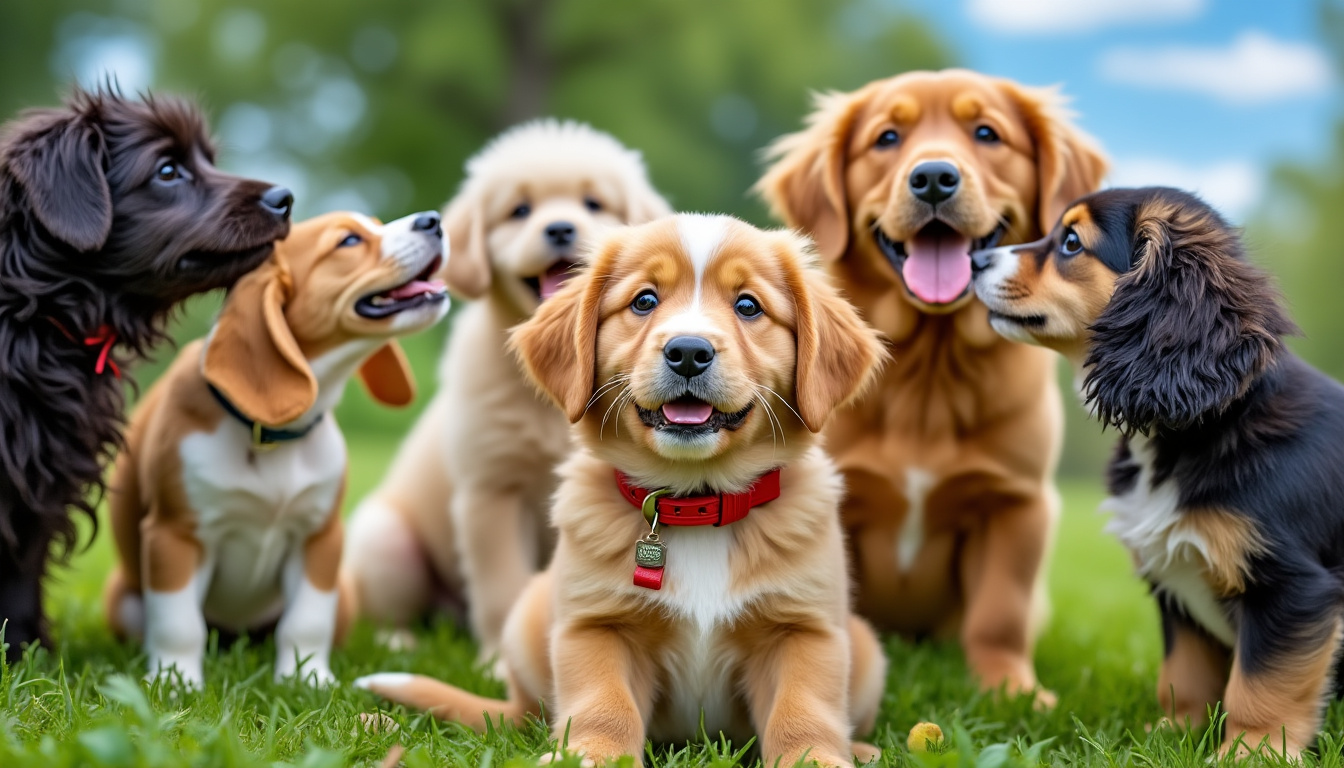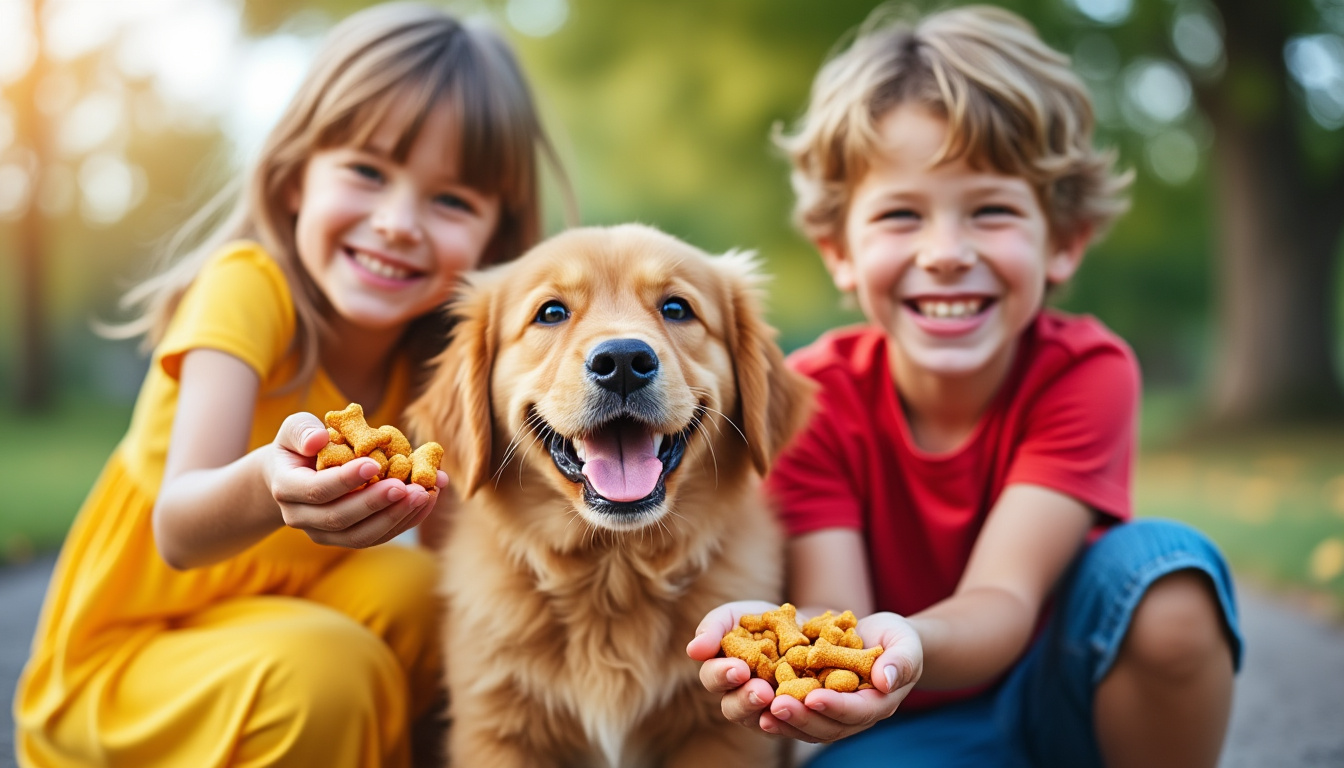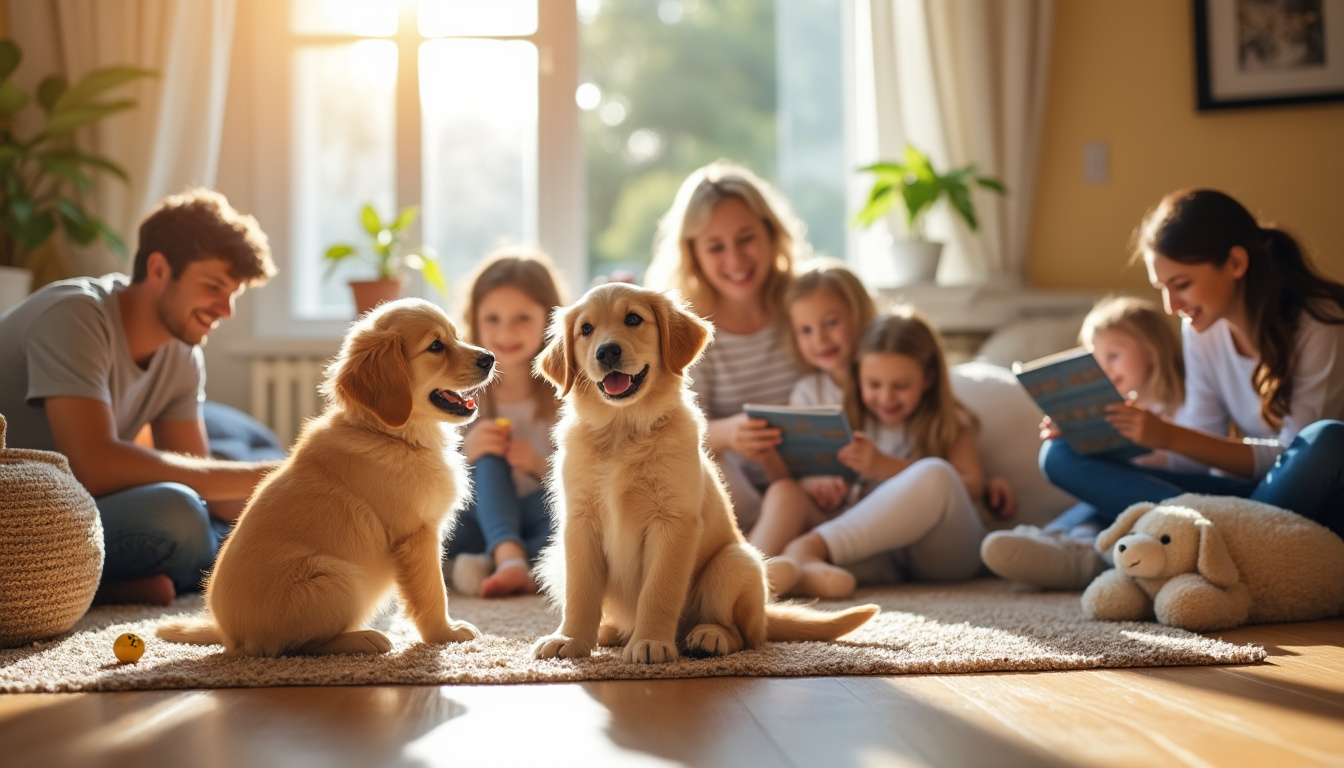Comment to socialize a puppy correctly?
Socializing a puppy is a crucial step for its development and future well-being. A properly socialized puppy becomes a balanced and thriving companion. From meeting other dogs to interactions with new people and environments, every experience matters. Understanding the stakes and methods of good socialization is essential to avoid undesirable behaviors in adulthood. In this article, we will explore the best tips to help your puppies on this enriching adventure, provide practical advice, and discuss the importance of puppy play sessions.
Why is socialization essential?
The period between 3 and 16 weeks is critical for puppy socialization. During this phase, their brains are developing rapidly, and they are more receptive to new experiences. Driven by their natural curiosity, they need to discover the world around them. A lack of socialization during this period can lead to anxiety, aggression, or other undesirable behaviors in adulthood.

The dangers of poor socialization
Behaviors such as incessant barking, excessive fear, or aggression towards other animals can arise in a poorly socialized puppy. These issues can persist into adulthood and harm its ability to thrive in society. The need to meet other dogs and discover different people and situations is crucial for its balance.
How to socialize a puppy?
Start as soon as you bring your puppy home. Increase encounters with various types of people: children, adults, men, women, even people wearing glasses or hats. Each of these interactions should be surrounded by positive sensations, such as treats and praises. This helps the puppy understand that every meeting is an opportunity for enjoyment rather than a threat.

Exposure to varied environments
It is essential to get your puppy used to everyday noises and objects, such as vacuum cleaners, cars, and even thunderstorms. Start slowly, respecting your puppy’s pace. A successful step could be to walk them in a park where they can meet other dogs. A guarantee of measured sociability!
Interactions with other animals
Socialization is not only about humans. Puppies also need to meet other dogs. Sign up for Puppy Play Sessions or organize meetups with friends who own dogs. Choose calm dogs to start with. This will help your puppy understand canine social signals and play appropriately. Remember that encounters should be positive. If another dog behaves aggressively or too intrusively, remove your puppy to avoid negative experiences.
The best tips for socializing a puppy
- Increase experiences: Every new experience should be positive.
- Stay patient: Never force your puppy into an uncomfortable situation.
- Use interactive toys: Puppy toy brands like Woufbox can be great allies.
- Avoid overly noisy environments: Especially if your puppy shows signs of anxiety.
The importance of positive training
An effective puppy education relies on positive training, which praises good behaviors rather than punishing inappropriate ones. Each time your puppy behaves correctly, reward it with treats or praise. This will reinforce the idea that positively interacting with its environment is beneficial.
Integrating clicker techniques
The clicker is an effective tool for reinforcing good behavior by associating a sound with a reward. This allows your puppy to quickly make the connection between good behavior and the reward, facilitating learning. Have fun integrating this system during playtime, ensuring that each encounter is positive.
The consequences of poor socialization
A puppy that has not been exposed to different situations and interactions may develop inappropriate behaviors. These vicious cycles are often difficult to break in adulthood. Puppies that have not been properly socialized can become fearful, reactive, or even aggressive adults. They are more likely to struggle to adapt to new situations, becoming stressed or on high alert.
| Undesirable Behavior | Long-Term Consequence |
|---|---|
| Excessive barking | Neighbor issues |
| Fear of other dogs | Inability to play |
| Hyper-attachment | Separation anxiety |



